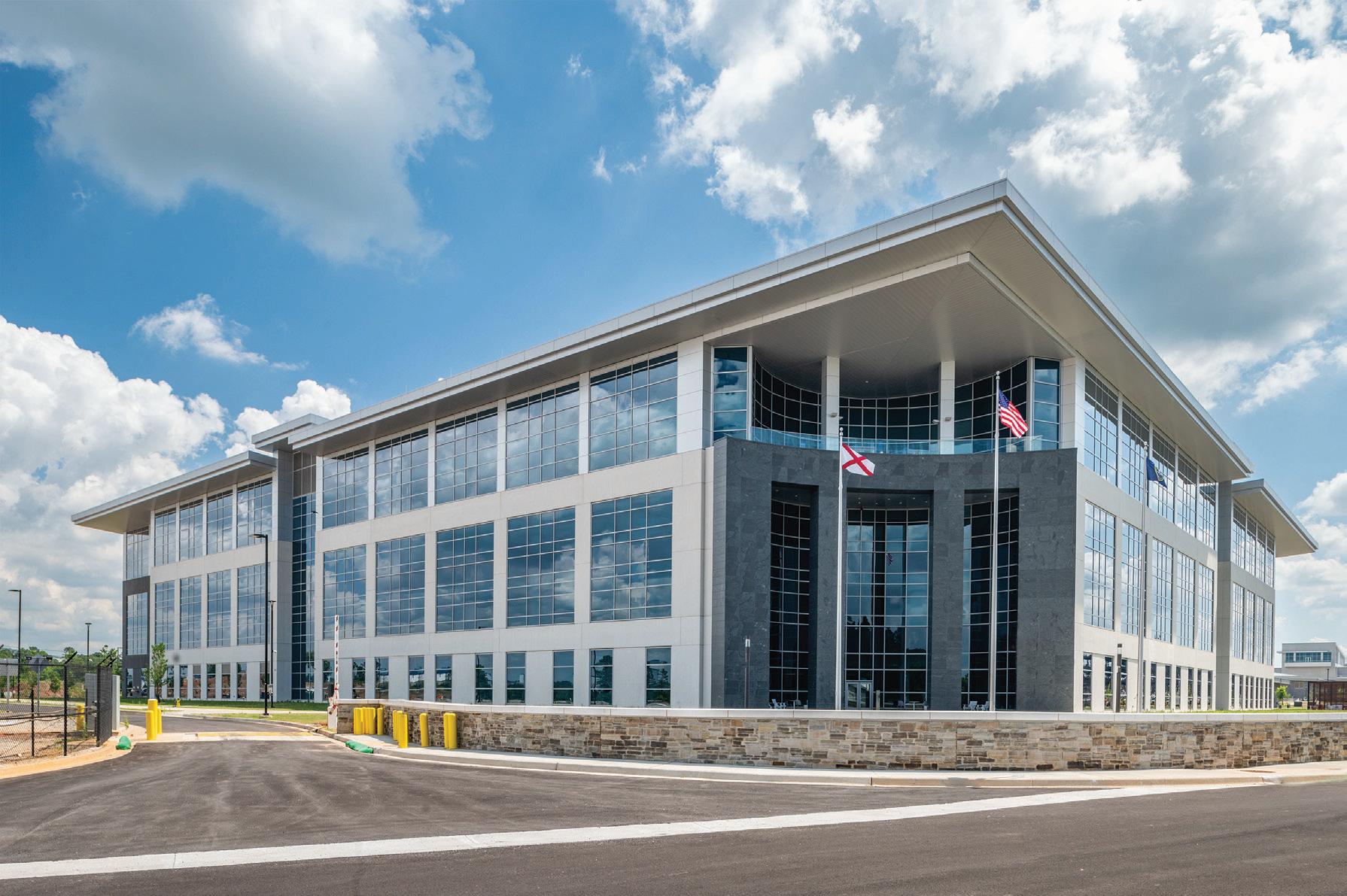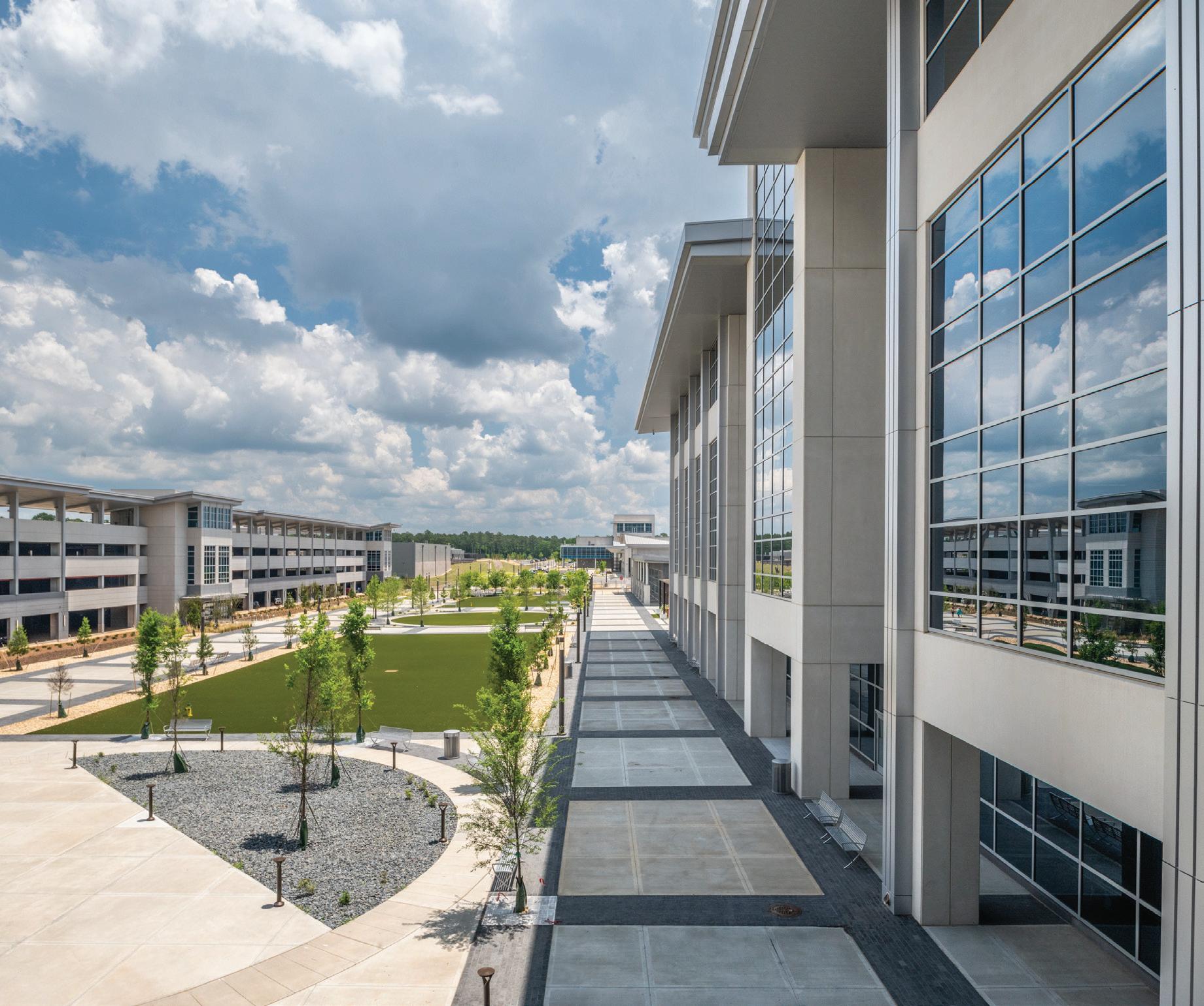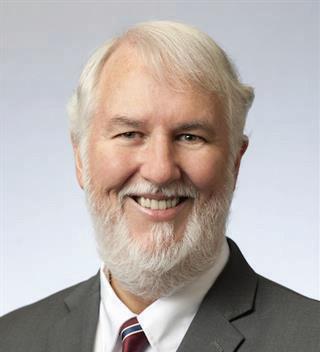
23 minute read
By Dawn Suiter
from HBJ Aug 2022 Issue
How Will the Threat of Recession Impact Huntsville Businesses? Experts Chime In
By Dawn Suiter
Advertisement
Shoppers these days are feeling the crunch every time they pull out their wallets—prices of consumer goods and services are rising ever higher from the grocery store to the housing market. At the same time, businesses both large and small are dealing with the fallout from consumers who are becoming more selective in their spending behavior.
This phenomenon isn’t unique to the US—it’s happening around the globe. The World Bank’s latest global economic forecast, released on May 31, forecasts that global economic growth will likely slow down before the end of the year. “For many countries, recession will be hard to avoid,” stated World Bank president David Malpass.
Many experts, such as Harvard economist Jason Furman, argue that there is no guarantee that a recession will occur. Even if it does, most economists agree that the likelihood of a repeat of an all-out collapse such as that of 2008 is slim.
In a Fortune magazine interview, Stephen Miran, cofounder of Amberwave Partners and a former senior advisor at the U.S. Department of the Treasury, stated that recessions are an unavoidable fact of economic life.
“We were fortunate in the previous cycles to have gone a pretty long time without a recession. But actually, you know, recessions happening has been the norm throughout most of economic history.” Instead, Miran believes it’s more likely that the U.S. economy will fall into what he refers to as a “garden variety recession” in which the economy “overheats,” causing inflation to rise.
Miran pointed out a notable difference between then and now: “The big thing in 2008, remember, what happened was really borderline fraud in the economy because you had all these people that were borrowing money [to buy homes] that really couldn’t afford it.”
In a recent economic discussion sponsored by the Huntsville-Madison County Chamber of Commerce, Oakworth Capital Bank Managing Director and Chief Economist John Norris noted some other major differences: “business to business activity remains reasonably strong. The economy is creating a lot of new consumers. We have a very tight labor market, so it’d be very interesting to go into a major recession with the banking industry as strong as it is.
Norris argues that any coming recession will not be anything like that of 2008, citing the Federal Reserve Bank’s weekly H.8 report, which tracks the assets and liabilities of commercial banks in the United States. At the end of 2007 the loan to deposit ratio rose to 107%, meaning that banks were overextended.
“They made more loans than their ability to finance the loan portfolios,” Norris said, noting that while it isn’t a big deal for one bank, this ratio encompassed the entire U.S. banking industry. “In hindsight, it wasn’t whether or not something bad was gonna happen, it was a question of when it would happen and just how bad it would be.”
Changes to the banking system, such as the Dodd-Frank Wall Street Reform and Consumer Protection Act of 2010 corrected this, and although some of the Dodd-Frank Act was rolled back under former President Donald Trump, protections continue to remain more robust than they were in 2008.
Norris observed that the loan to deposit ratio is currently at 62.5%, meaning the banking system has “a ton of excess liquidity” and is very anxious to make loans. “There has never been in my studies a period of time where the banking industry is flush with liquidity and actively trying to make loans and actively trying to extend credit where all of a sudden the U.S. economy just collapses.” As a result, he argues that if there is a recession, it won’t be as bad because the banking sector is “super strong.”
In the US, the Federal Reserve has raised interest rates again in its biggest rate hike since 1994 in an attempt to tame inflation. While this is an effective way to cool the red-hot market, small business owners are not optimistic about the future.
According to a recent study by the National Federation of Independent
“Small business owners remain very pessimistic about the second half of the year as supply chain disruptions, inflation, and the labor shortage are not easing.” “While I will never say we are recession proof, I do feel like our community is positioned as well as any community in the nation to weather an economic slowdown.”
Business (NFIB), the percentage of small business owners expecting better business conditions over the next six months decreased four points to a net negative 54%, the lowest level recorded in the 48-year-old survey’s history. Expectations for better business conditions have deteriorated every month since January.
Twenty-eight percent of owners reported inflation was their single most important problem in operating their business, down four points from April. The net percent of owners raising average selling prices increased two points to a net 72% (seasonally adjusted), back to the highest reading in the survey’s history last reached in March and 32 points higher than May 2021.
“Inflation continues to outpace compensation which has reduced real incomes across the nation,” said NFIB Chief Economist Bill Dunkelberg. “Small business owners remain very pessimistic about the second half of the year as supply chain disruptions, inflation, and the labor shortage are not easing.”
On a more local basis, a February report from Area Development Magazine noted that Alabama is faring better than its neighboring states. CNN named Alabama “Best Southeastern State in Keeping People Employed During an Economic Crisis,” while Forbes magazine named Huntsville the “Best Place to Live During Recession.”
Madison Mayor Paul Finley remains optimistic about the future of the area: “While I will never say we are recession proof, I do feel like our community is positioned as well as any community in the nation to weather an economic slowdown.” w

Staffing and Supply Chain Issues Remain as COVID Stays Active
By Mike Easterling
While the coronavirus keeps reminding the country, and Madison County, it’s not through with us as recent case numbers and hospitalizations rise in wake of the new sub-variant BA.5, the original COVID-19 is still having an impact.
Though perhaps not as significant as at the height of the pandemic, staffing and supply chain issues that began at the onset of the virus linger.
The restaurant and fast-food companies appear to be the hardest hit when it comes to workforces with “Now Hiring’’ and “help Wanted’’ signs dotting the landscapes outside and on windows of those businesses.
According to a bar manager for a national chain restaurant in the south part of the city, who remained anonymous due to corporate standards, expressed doubt that federal government stimulus checks given out earlier during the pandemic were enough to sustain individuals

or families.
“That can’t last,’’ she said. “I literally don’t know how people are paying bills without working. I don’t know if people found another field to go to.’’
The latter is one theory as to why businesses seek a return of employees following pandemic shutdowns. The reasoning is jobs might have opened for higher wages than can be found in the food services and other lowerwage industries.
“We’re still seeing across-theboard a competitive labor market and talent landscape for sure,’’ Huntsville-Madison County Chamber of Commerce Vice President of Work-

force Lyndsay Graham said. “One of the things that we have seen, we actually got data last month from the state level, and one of the things that we focus on a lot in addition to the unemployment rate is the workforce participation rate. So what we want to see is the greatest number of people that are able to be in the workplace actively working or looking for work.
“So we actually saw that laborforce participation rate increase by about a percentage point for our region over the last month. Seeing that number go up is a good trend for us, because it means more people are out there actively seeking employment opportunities and hopefully looking to get back into the workforce even in the case of those that maybe have been out of it and therefore wouldn’t have been captured in those unemployment numbers that we’ve been looking at.’’
Despite reports of the unemployment rate at a record-low 3.6 percent nationally for the past four months, industries including food services continue to report a lack of workers.
Alabama was at a 2.7 percent unemployment rate in May, according to U.S News and World Reports. The White House released a statement that same month saying Alabama was among 17 states where workers are “less likely to be unemployed than any other time on record.’’
The White House also reported in May that none of the 50 states reported an increase of unemployment and those payments were the lowest in 52 years. Those numbers suggest that workers have simply tried to climb the wage ladder instead of returning to lower paying jobs.
However, “Staffing is getting better,’’ an unnamed manager of a national restaurant chain in north Huntsville said.
“It’s not too bad in the back end (kitchen), but it’s hard to find servers.’’
Supply chain improving
Ships no longer sit idle at sea outside docks loaded with cargo as they did months ago while the globe experienced a supply-chain issue caused by the pandemic.
Goods are still being shipped at higher rates—Fleet Feet owner Suzanne Taylor reports a fee of $15 that once was $5—but shortages have been minimized.
And higher gas prices, a burr in the population’s collective saddle recently, have reportedly gone down for 30 straight days. Costco, for instance, had regular gas per-gallon listed at $3.79 July 15 and the same day a station in the city’s Five Points neighborhood had it at $3.99.
“(Supply chain) was a real thing for us,’’ Taylor said. “We’re in a good position now. Last fall, we actually overbought about 2,000 pairs of shoes and put them in our garage so we would have them. The first quarter (this year) was really bad. It was hard on our inventory. We were worried because it creates an upside down situation on your cash flow, but it paid off and we went through those pretty quick.
“All of the shoe manufacturers for the most part, they may be like three weeks behind on delivery but not six months. There’s no stuff sitting on boats anymore. That was real.’’
Rising costs, like shipping, are not the fault of retailers.
“You’re kind of at (the suppliers) mercy,’’ Taylor said. “It trickles down to the consumer. Our costs go up, they’re costs go up. And everything we sell is suggested retail. We have limitations on how much we can mark down things.’’
Hangovers from the height of the pandemic exist.
“The cost of goods are way up,’’ the north Huntsville restaurant manager said, “and we are having trouble

getting paper goods and some liquors.’’
Virus lives on
The COVID virus has been and remains “real’’ in the Tennessee Valley and nationwide. It keeps mutating and is currently introducing its latest strain BA.5 that has caused cases to rise.
According to Huntsville-Madison County Emergency Medical Agency Director Jeff Birdell, the number of cases is rising but not enough to overwhelm hospitals or their staff.
However, he said, case numbers “have been going up a little bit.’’
In the middle of July, the sevenday average of new cases was up at 162 but far from the peak number of 1,048. And while there were only eight people hospitalized with Covid weeks ago countywide, and there are 64 as of June 14, that’s far less than the peak of 300 at the height of the pandemic.
“(64) is not a great number, you don’t really want that number,’’ Birdwell said. “But, the important thing is the deaths are significantly reduced.’’
Return of mandates?
Redstone Arsenal released news recently that there would be mandatory masking at all base facilities in lieu of rising positive test cases in Madison County, which rates the state’s high-risk areas among several statewide.
This order was widely maligned on facebook, including statements like: “This is beyond stupid.’’ “Ridiculous beyond measure.’’ “Heaven forbid anyone catches a cold.’’
North Alabama district medical officer for the Alabama Department of Public Health (ADPH) Dr. Wes Stubblefield is in touch with those sentiments and for now doesn’t see a widespread return to masking.
“I don't know if there's really much of a public interest for masks mandates at this point,’’ he said. “Institution can act in certain ways, but what the Centers for Disease Control (CDC) and the ADPH recommends—we don't make policy but a direct recommendation.
“I just don't think that there's an appetite for (mandating masking) in our state, I really don't.’’
He also adds that the data does show a rise in COVID cases.
“We do know the trend where we’re heading,’’ Stubblefield said, “which is this gradual rise.’’
Meanwhile, staffing and supplychain issues appear to be easing Fleet Feet, for instance, counts on summer employees who have sometimes began working there in high school and continue to return from college summer breaks.
Taylor is at once optimistic and cautious. While her store didn’t experience the so-called Great Resignation, there were some older workers who chose not to return once the pandemic began.
As for supply, shelves locally have never been vastly empty despite national and social media reports and currently only a few holes are seen here and there at grocery and large retailers.
The big picture does not appear blurred.
“Come August, we’ll probably be short-staffed again,’’ she said. “Apparel is still an issue as far as supply chain. That’s not as important, maybe it is for those of us who like to look good, but we’ve got clothes. People need shoes.’’ w





Hensel Phelps Achieves Final Completion of Five Buildings at the FBI North Campus on Redstone Arsenal
The vision for the FBI to expand its presence at the Redstone Arsenal in Huntsville, Alabama is closer to fruition with Hensel Phelps achieving final completion of the Operations Support Building (OSB), Central Utility Plant (CUP), Health, Wellness and Resiliency Center (HWRC) and Technology 1 Building in 2022.
This marks two completed projects by Hensel Phelps for the FBI on the North Campus, and the first of two technology buildings, constructed to support the Bureau’s extensive expansion and is expected to bring several jobs to the North Alabama community. This in turn will help stimulate the local Huntsville economy with an influx of employees moving to the area to work in said newly complete buildings.
The FBI has had a presence at Redstone Arsenal for more than 50 years and was offered the opportunity by the US Army to build its capabilities, create new partnerships and ultimately further its mission. The agency has secured funding to increase its footprint in the area, with a focus on technology, innovation and bringing several additional FBI employees to the area.
By Guest Post Photos courtesy of Hensel Phelps

“The decision to relocate programs and jobs to Redstone Arsenal is part of an integrated strategy to organize and structure the FBI for the future. With the opening of the Technology 1 Building the FBI is able to apply its expansion strategy with a broad range of technology by focusing our investments on enterprise and applied technology and advanced and specialized training throughout the next decade and beyond,” said FBI Deputy Assistant Director Kathleen Mills.
The Operations Support Building (OSB) is the signature building of the North Campus and establishes the design language for all future construction on the campus. The building is prominently placed at the site’s main vehicular entrance. The large, concave four-story entry and significant roof overhang provides a dramatic first impression upon approach to the campus. The building’s exterior façade consists of architectural precast panels and expansive amounts of glazing. These materials are arranged to provide a strong base for the structure that accents the rhythmic pattern of the glazing. The four story OSB is divided into three wings totaling approximately 310,000 square feet. The main lobby, located in the Center Wing on the first and second floor, is called the “Collision Zone." This space is accessible through a staircase located on the southwest corner of the building and from the main courtyard entry point. The central feature is a multifunctional oval staircase.
In addition to vertical circulation, the stairs also provide theater style seating for presentations and collaborative workspace for daily use. The oval staircase faces a large LED video wall which serves multiple functions, including conveying information or broadcasting news programs during normal operations. Additionally, it serves as a backdrop for speakers during presentations and a portable stage allows the space to be used for collaboration.
A large opening allows for additional viewing opportunities of presentations from the second floor as well as collaboration style seating. A vestibule area is located at the main courtyard entry for visual screening of occupants and escorted visitors entering the building.
The Collision Zone also contains two food service areas, a visitor conference room, storage rooms and support spaces. The upper floors of

the Center Wing and most of the East & North Wings house employee workspaces which includes individual work settings, group spaces, community rooms and support spaces. The workspace area is separated from the Collision Zone by a one-hour rating, accomplished by providing automated horizontal fire doors or rated glazing assembly. The building includes demountable partitions to allow for a dynamic workspace where rooms can be changed or moved.
Each room, with respective partitions, have in wall conduits to support AV functions as well. The ground level of the North Wing houses Shipping and Receiving, the IT Workroom, the Redstone Operations Center (ROC) and Nurses’ Suite in addition to employee workspaces.
“Hensel Phelps cannot be more proud of the efforts put forth from the talented trade partners that in many instances traveled from across the country and worked 6-7 days/ week throughout the duration of the project to get us across the finish line.” Said Hensel Phelps Project Superintendent Sean Crowe.
The Health, Wellness and Resiliency Center (HWRC) is comprised of two buildings (Fitness Center & Community Building, as well as a Pavilion space); a 23,000 square foot, single-story facility, that serves as a service point for the campus and contains outdoor gathering spaces, a retail location for the FBI Recreation Association, a grab and go café that offers made to order sandwiches and salads, an office for the Employee Assistance Program, and a credit union automated teller machine. A 6,000 square foot pavilion, featuring a canopy and precast half walls that connect the HWRC to the 12,000 square foot Fitness Facility. The Fitness Facility offers group exercise classes, resistance machines, treadmills, spin bikes, elliptical machines, and free weights which support fit-for-duty requirements.
The Technology 1 Building is a four-story, 87,000 square foot building that houses administrative and technical space. The Type IIA construction consists of structural steel framing with open web steel joists, architectural precast panels, curtainwall/storefront windows and standing seam metal roofing. Its unique features include raised access flooring, security enhancements, as well as heavy IT/communications.
To support the building’s groups and their missions, the project includes a state-of-the-art telecommunication system. The Technology 1 Building is the first of several new buildings that will house different divisions of the FBI. This building serves as office space for multiple groups and will house several employees.
The design merges the technology sector aesthetic with practical functionality. The project features an interior communal break area and outdoor spaces to emphasize a campus-style environment. The design communicates the FBI’s commitment to providing a modern work environment that balances the space’s mission with the workforce’s wellbeing. The design team accomplished this vision by providing ample collaboration space to allow cross-functional or interdepartmental teams the opportunity to effectively work together.
“I’ve been with Hensel Phelps for 17 years. I am the Project Manager of the team that completed the Commons and Technology 1 Project in January of 2022, and I was thrilled with the energy and commitment to excellence I saw over and over again. With everyone's hard work, our team successfully turned over the buildings, while also driving towards a successful 100% security inspection ahead of accreditation,” said Hensel Phelps Project Manager Marcus Davis. “This doesn't happen by accident. Our success was truly a team effort, and the Government was there supporting us the entire way, by showing grit, while meeting every challenge. I’d like to acknowledge the incredible FBI professionals who showed up every day and made our success possible. Thank you”.
Hensel Phelps completed several delegated design items, including raised access flooring, two site retaining walls, aggregate geopiers and the furniture, fixtures and equipment (FF&E) package. The Technology 1 Building is designed and constructed to LEED Silver standards. w


Brandon C. Smith, CPA, Named Managing Partner of Anglin Reichmann Armstrong
Anglin Reichmann Armstrong announced the appointment of Brandon C. Smith, CPA to Managing Partner, effective today. Current Managing Partner Gary Anglin, CPA, CGMA, transitions to chair of the firm’s board of directors.
“Brandon’s role is a very intentional piece of our growth strategy, and he will continue to work closely with our internal team while also maintaining direct client contact. He has a natural skill set for building relationships and implementing strategy, which perfectly matches who we need as the next managing partner,” said Anglin
Smith joined the firm in 2006 shortly after switching his career interests from computer science to accounting. He achieved his Master of Accountancy degree in 2007, and he has since served clients in a variety of industries as an outsourced CFO and business advisor.
He expressed excitement for the managing partner role, noting that his background in IT and business advisory services (rather than a specific tax or audit track) is similar to the evolution of the public accounting industry today.
“I grew my career at Anglin through our consulting practice, and this emphasizes where our firm is and where the profession is going — advisory services beyond compliance work.”
Anglin will maintain his focus on client consulting while being available to the management team as needed. He will stay involved in the profession through CPAmerica International and state CPA societies.
“I want our team, clients and community partners to feel good about the direction of the firm. We have a plan in place for firm leaders like Brandon and our emerging leaders,” Anglin added. “Team continuity and positive local impact are the cornerstones of that strategy.”
Bradley’s Harold Stephens Honored with President’s Award by Alabama State Bar Association

Bradley Arant Boult Cummings LLP is pleased to announce that the Alabama State Bar Association has recognized H. Harold Stephens with the President’s Award.
The President’s Award is presented annually to members of the bar who exemplify the motto of the Alabama State Bar, “Lawyers Render Service.” Mr. Stephens was among the 2022 recipients recognized at the bar’s annual meeting held on Saturday, June 25.
“Harold is tremendously deserving of this award, which honors his dedication and years of service to the bar, and by extension, to the state of Alabama,” said Bradley Huntsville Office Managing Partner Frank M. Caprio. “We are proud of Harold’s exceptional work and of this special recognition.”
Mr. Stephens is a partner in Bradley’s Huntsville office and focuses his practice on healthcare litigation, defending physicians in medical liability claims, as well as hospitals, nurses and other healthcare providers. He also represents clients in business and commercial disputes, including trade secret litigation, fraud and contract cases and computer software disputes.
Mr. Stephens devotes a significant portion of his practice to alternative dispute resolution, and is a charter member of the Alabama Academy of Attorney Mediators and a member of the Panel of Neutrals for the United States District Court for the Northern District of Alabama.


Huntsville Hospital Heart Center Names New Vice President
Morgan Dennis has been named Vice President of Huntsville Hospital’s Heart Center and Cardiovascular Service Line.
Dennis comes to the Rocket City from Tufts Medical Center Community Care in Boston, where he held numerous leadership roles including executive director, administrative director of medical surgical specialties, and business manager. Before that, he served as finance and operations manager for Huntsville Hospital’s Cardiovascular Service Line, responsible for the Heart Center’s satellite clinics. He also spent time as an administrative resident at Huntsville Hospital.
Dennis earned his Master of Science in Healthcare Administration degree from UAB and also has a Bachelor of Science in Microbiology from the University of Massachusetts. He started his new role at Huntsville Hospital on July 5.
With more than 1,000 medical professionals devoted to cardiac care, Huntsville Hospital has the largest cardiology program in North Alabama and is recognized as a U.S. News & World Report High Performing Hospital for heart bypass surgery, heart attack care, heart failure care, aortic valve surgery and abdominal aortic aneurysm repair.
Mr. Wilson Enslen Accepts Position as Leasing and Sales Specialist with NAI Chase Commercial

NAI Chase Commercial, a member of the world’s premier managed network of commercial real estate firms, NAI Global, announced today that Wilson Enslen has accepted a position as Leasing and Sales Specialist in the Huntsville office in early June.
“We are so pleased to add Wilson as a new member of our brokerage team! Wilson comes with a strong financial background, a hunger for success and willingness to serve his clients. We’re honored to have him as the newest member of the NAI Chase team. The market will see great things from this young man,” said Douglas A. McCullough, CCIM – Vice President of Brokerage.
Prior to accepting the position of Leasing and Sales Specialist, Wilson has been attending Auburn University where he is completing his finance major with a minor in accounting. As our newest licensee, Wilson joins the other professionals at NAI Chase Commercial. A fun fact about our new member is that Wilson loves all things golf.






